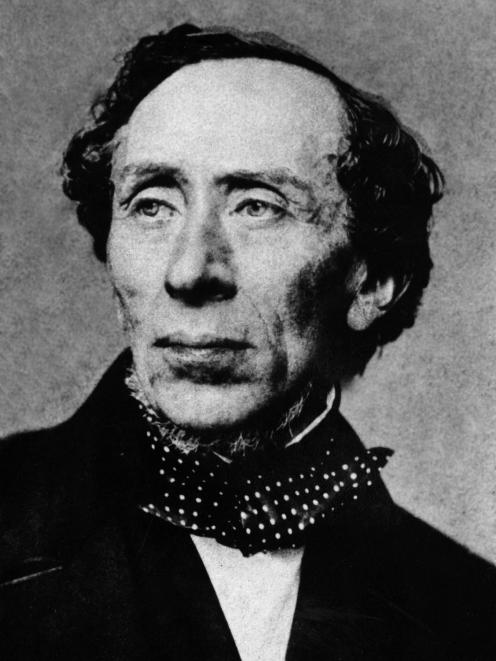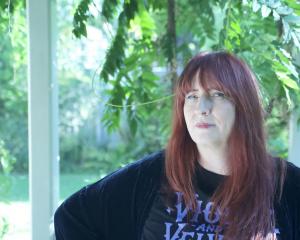Danish writer Hans Christian Andersen’s behaviour on an extended visit killed his friendship with Dickens, writes Vanessa Thorpe.

It was not, to say the least, a successful visit. The burgeoning friendship between a pair of literary stars, Charles Dickens and Hans Christian Andersen, had looked set to last.
But it could not survive an overlong stay by the Danish author at the British novelist's family home in Kent. Just how bad things became, on one side at least, has been revealed by a surprisingly frank letter sold at auction recently.
In March 1857, Andersen had announced he was coming over for a short summer stay of a fortnight at the most. Andersen wrote: "[M]y visit is intended for you alone,'' and added, "Above all, always leave me a small corner in your heart.''
By the time Andersen's visit had come to an end, after a full five weeks, Dickens felt compelled to confide to the former prime minister Lord John Russell that the creator of some of the world's best-loved fairy tales was a bad house guest.
"He spoke French like Peter the Wild Boy and English like the Deaf and Dumb School,'' complained the great author, making a cruel reference to the well-known story of a feral German boy "Peter'', an ungainly court favourite in Georgian England.
And, according to the reluctant host, Andersen was no better in any other language. "He could not pronounce the name of his own book The Improvisatore, in Italian; and his translatress appears to make out that he can't speak Danish,'' Dickens wrote.
The remarkable letter, which fetched 4600 and is to stay in London, was just one in an extraordinary trove of correspondence, images and autographs sold by the Suffolk auction house Lacy Scott & Knight last month.
The rare documents, including an album sold to an American telephone bidder for 16,000 that contains a scrap of Jane Austen's handwriting, are all part of a Scottish family collection handed down the generations. There were also letters from Queen Victoria, William Gladstone, Charles Darwin and Sir Walter Scott.
"There is a huge range here, from political figures, to authors and royalty and the provenance of all the lots is excellent,'' said Guy Pratt, a book expert and consultant for the auctioneers. "The original collector was well-connected.''
Guests, it is sometimes said, like fish, go bad after three days. Andersen's five weeks with Dickens was clearly pushing it. The famous writers first met in the summer of 1847 at an aristocratic soiree where Andersen had told Dickens he was a big fan, calling him "the greatest writer of our time''.
Some of the Danish tales had just been translated into English and so Andersen was on what might now be described as a promotional tour. In a letter back to friends, Andersen gushed that Dickens "quite answers to the best ideas I had formed of him''.
A couple of weeks later Dickens, one of the most celebrated names in London, left a package containing a note and presentation copies of a dozen of his books at Andersen's lodgings.
On his return to Denmark, Andersen, noted for his social awkwardness, appears to have become a little obsessed with the dashing English author.
For nine years he sent him regular fan letters, along with books for review. When the Dane came to stay in July 1857, it was not during a good time for Dickens, who was considering leaving his wife. His serialisation of Little Dorrit had not gone down well either and he was also feverishly rehearsing his acting role in Wilkie Collins' The Frozen Deep.
For his part, Andersen found Gad's Hill, in Higham, Dickens's country home, too cold, a biographer has noted. And he was also upset that no-one was available to shave him in the morning.
Soon his mood swings also became a problem. He lay down on the lawn and wept after receiving a bad review and then cried again when he finally left Gad's Hill on July 15.
Dickens was less glum on his guest's departure, writing on the mirror in the guest room: "Hans Andersen slept in this room for five weeks; which seemed to the family AGES!'' The author is already known to have written to his friend William Jerdan six days later complaining about Andersen's oddness.
"Whenever he got to London, he got into wild entanglements of Cabs and Sherry, and never seemed to get out of them again until he came back here, and cut out paper into all sorts of patterns, and gathered the strangest little nosegays in the woods,'' he wrote.
The correspondence between the pair died out soon afterwards. But the brief relationship may not have proved entirely fruitless. Some scholars have suggested that Andersen, later described by Dickens's daughter Kate as "a bony bore", could have inspired the character of the toadying Uriah Heep in David Copperfield.
- Guardian News and Media
Comments
Gad Hill
Anglelandt
Liebling
I have to write in German so Boz doesn't hear. Oh, the Cold! Cold enough to freeze a Capuchin's. What I wouldn't give for A Tinder Box and dogs with eyes as big as saucers! I'm going potty.
Back again. Oh, the relief! It's all the Cabernets and Sherry, but there are no Schnapps. There is no person to shave me. Yet, I remain humble. Anglelandt schtinks like pendulum do. I scour the wood for nosegays. Fie! No Scandies and I never see anything Finnish.
Soon, I shall see once more that Friendly Old Girl of The Sea, and it's on to Copenhagen.
Bad notice for Hansel and Gretel. I cried, to the hissing of Summer lawns.
No larch, no birch, no mill, no floss. Dead loss. Good-by.
Bony












